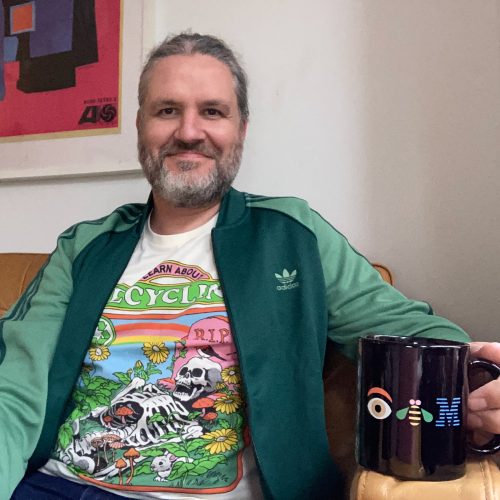Dreaming of 2053
New Paper in Design Journal
Design for Sustainability, Regenerative Design, More Than Human-Centred Design, Designing for Transitions, Sustainable Human-Computer Interaction, Circular Economy, Circular Product-Service-Systems, Cradle to Cradle, Biodesign, Net Zero Infrastructures, Philosophy of Technology, Co-Design, Participatory Design

Designing A Sustainable Internet of Things
Michael’s doctoral research focused on the environmental impacts of industrial product design in the age of ubiquitous computing, specifically the sustainability of the Internet of Things. Through practice-led design research, Michael developed the concept of spimes into a multidimensional lens which other designers, researchers and technologists can harness in order to reframe their IoT praxis to have sustainability baked-in from the outset.
The Little Book of Sustainability for the Internet of Things and the sustainable design manifesto Spimes Not Things serve as introductions to Michael’s research.
Click on the images below to read the publications
Michael Stead's full list of publications can be viewed here
New Paper in Design Journal
Report by Nigel Thompson, 15 March 2024
Report by Nigel Thompson, 8 March 2024
Publication day
Justin McGuirk, Director Future Observatory and Chief Curator, Design Museum
Author: George Kafka, Future Observatory Curator
Proud to be a part of the ESRC Festival of Social Science
Edge of Reality and Edge of Tomorrow Projects visit British Science Festival and the V&A's Digital Design Weekend
Imagination researchers are going to DRS 2022 in Bilbao
A partnership is forged between ImaginationLancaster and Stanbic Bank’s Accelerate in Botswana.
Is Your Data Contributing To Climate Change?
The Repair Shop 2049: Exploring the Role of Physical-Digital Technologies in Shaping Future Local Sustainable Repair Ecosystems
Prototyping multi-stimuli systems to programme state-changing materials
ImaginationLancaster Design Summit
Paper published in The State of Responsible IoT 2020: From Good Things to Good Systems
WEF State of Connected World 2020 Edition
Designing Interactive Systems conference workshop - 13-14 July 2020
The Right to Repair and Equal-IoT
Designing Educational Toolkits to Accelerate Digital Circular Economy Education Within Local Communities
Towards Resource Responsible Trustworthy Autonomous Systems
Experiencing Data (Un)Sustainability
Exploring the Role of Physical-Digital Technologies in Shaping Future Local Sustainable Repair Ecosystems
Understanding the Impacts of IoT Cybersecurity and Datafication to Co-design a Sustainable Edge
For all your future Design Fiction needs!